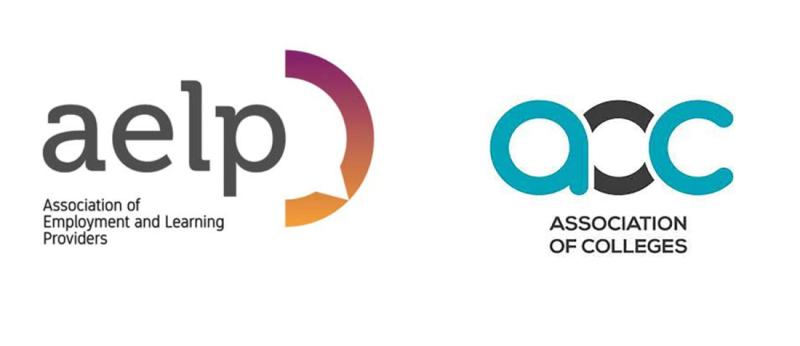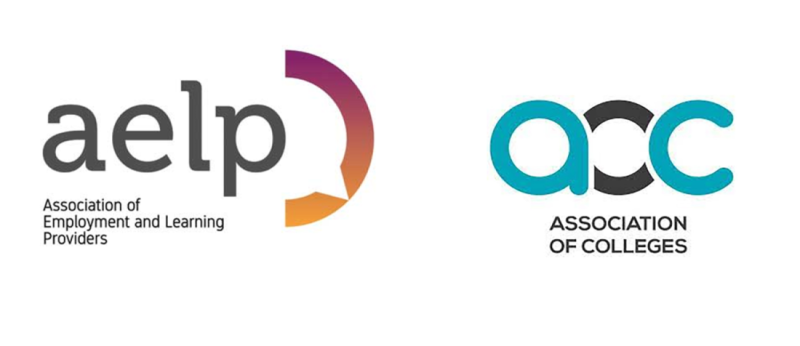In The News
There is now less than a week until the country goes to the polls.
While prospects of an unprecedented electoral result loom, below the headlines concerns about the future of further education are mounting.
New research from the Institute for Fiscal Studies has found that the next government will have to find £400 million just to sustain 16 to 18 education funding at current levels. Even then, this would represent a 9 per cent decline in per pupil spending since 2009-10.
Separate analysis by the Education Policy Institute has found similar. The “wider situation of government finances”, coupled with the policy stances of the main parties on taxation, has resulted in an offer for education that is “exceedingly limited and does not address the challenges that schools and colleges are facing”, the report said. Commitments to funding sixth forms and FE colleges, it continued, were “even more” so.
There is overarching concern that the two major parties are failing to put forward proposals to fix the issues currently facing the sector. Meaty policy changes in the face of such concern remain few and far between.
There are, however, some proposals worth looking at Labour's flagship skills policy is the overhaul of the apprenticeship levy into a new “growth and skills” levy. This would allow businesses to allocate up to half of their levy contributions to non-apprenticeship training, ensuring a minimum of 50 per cent is reserved for apprenticeships. Leading UK business executives have endorsed this proposal in recent days, supporting its plan to protect apprenticeship funding while providing flexible workforce training opportunities.
The party has also proposed the formation of Skills England, a national oversight body, the creation of specialist technical excellence colleges, guaranteed youth access to training, and a promise to empower local areas with new authority over adult education, skills, and employment support.
The Conservatives' headline policy is to create 100,000 more apprenticeship starts annually by 2028/9, funded by cracking down on "rip-off" university degrees. They plan to use funds that would otherwise have supported student loans for an estimated 13 per cent of students whose courses will be closed down.
Other Conservative proposals for the FE and skills landscape include a national service programme for 18-year-olds, the development of the Advanced British Standard, and the introduction of a Lifelong Learning Entitlement, which aims to provide adults with flexible support to train, retrain, and upskill throughout their careers.
In this edition, we sit down with experts from across the further education and skills industry to gauge their perspectives on the most significant of these proposals. We interview both the Simon Ashworth of the AELP and the Association of Colleges, and hear from Paul Ferguson, Operations Director at Lifetime Training.
With the two major membership bodies for both colleges and training providers, we consider where reform in the sector should be targeted, and evaluate the most significant challenges that might face FE and skills in the coming years.
Interviews: Association of Employment and Learning Providers (AELP) & Association of Colleges - Reviewing the Conservative and Labour Party’s Manifesto Pledges

What are your thoughts on the Conservative Party's headline manifesto pledge to introduce 100,000 more apprenticeships annually by "cracking down" on "rip off" university degrees?
Simon Ashworth, AELP : "Our aim should be a system which encourages informed choice, so we should be careful about pitching this as apprenticeships versus degrees. However, more investment in apprenticeships is always welcome. £880m is a significant amount, especially as it comes on the back of the removal of co-investment for apprentices under 22, and a government announcement to “guarantee” to meet demand amongst small and medium sized employers for apprenticeship.
"There’s still more to be done though. There are barriers to apprenticeship growth that goes beyond funding – including how the Apprenticeship Service operates, a lack of flexibility in standards and the way in which functional skills qualifications acts as an exit requirement. We also need further thinking on how we can stimulate demand – especially for small and medium sized employers, as well as among young people."
Association of Colleges: "We welcome the commitment to introduce 100,000 extra apprenticeships, but questions remain about the proposal. Given that there is no cap on higher education, shutting down some courses may simply mean that students opt for an alternative degree-level programme. It’s therefore hard to see how projected savings would transfer directly to apprenticeships. We would like to have seen more emphasis placed on targeting new apprenticeships starts at those wanting to enter the workforce, rather than those who want to complete a degree.
"We are otherwise pleased that the Conservative manifesto confirms their commitment to increase the hours of teaching that young people get in their education to ensure that they get the very best start in life. In England, 16 to 18-year-olds only benefit from around 15 hours per week of teaching time, compared with 25 to 30 hours in many other OECD countries. Stepping up that investment would make an enormous impact on young people’s resilience, confidence, skills and potential for the future."
Labour's plan for the apprenticeship system includes reforming the apprenticeship levy into a more flexible 'Growth and Skills Levy', which would enable businesses to spend up to 50 per cent of levy funds on non-apprenticeship training. What do you see as the advantages and/or drawbacks of this proposal?
Simon Ashworth, AELP: "With 98% of the Department for Education (DfE) apprenticeship budget being spent over the last two years, flexibility to spend funds outside of apprenticeships would require greater investment or it would reduce the volume of apprenticeships in the future, which would be a backward step. Enabling businesses to spend up to 50% is also a very high threshold and starting point.
"The current system works on the basis that non-levy payers are funded from levy payer underspend. Put simply the more levy payers spend, the more the non-levy funding is constrained. To give levy payers more flexibility we could see non-levy payers being restricted, by volume, age, level or a range of these. Although we advocate more support for young people, there is a risk this would be a backward step and move away from a system which is accessible to people of all ages and at all levels.
"During the General Election campaign, Labour have promised a return for traineeships, which we agreed are the right vehicle to help “on-ramp” young people and add an important route into apprenticeships. Labour have also advocated introducing modularised training to help upskill adults. We think that this could be a great way at ensure existing apprentices maintain competence in sectors where new skills and technologies are appearing, such as AI or retrofit in Construction."
Association of Colleges: "The Labour Party’s proposal to transform the apprenticeship levy into a skills and growth levy is a good first step in addressing the labour market challenges that have been holding back economic growth, whilst giving young people and adults the training and skills they need to flourish. The apprenticeship levy has not delivered for young people, for new labour market entrants nor for those from the most disadvantaged backgrounds. This new proposal will offer employers the chance to use the levy on more cost-efficient training to support employees to adapt and thrive as jobs and technology change.
"More widely, Labour have clearly been listening on post-16 education and skills. They recognise the vital role that colleges play in their local communities and in national economic growth. We welcome their commitment to introduce Skills England as a national oversight body linking industrial strategy, migration and key national growth sectors like net zero, health, and construction."
Opinion: Paul Ferguson, Operations Director, Lifetime

I have spent some time analysing the manifesto commitments from the two main parties for post-16 education and skills.
While skills policy is still not at the forefront of any of the parties' campaigns, it is good to see that their growing talk about skills in recent years has filtered into their manifestos.
It was interesting to see both Labour and the Conservatives have increasingly been linking immigration to their skills policy - with the Conservatives’ calling for additional restrictions on skills visa routes, and Labour saying they would reduce the need for overseas workers by training and retraining British workers. These proposals will be of particular interest to those working in the care sector, I expect.
The manifestos finally confirmed each party’s commitment to either reforming and/or investing in the skills and apprenticeship system.
Labour is pledging to create a new public body “Skills England,” which would consist of leaders from businesses, training providers, and national and devolved local governments. It would give the right stakeholders a voice in future decisions. Labour is looking to devolve all adult skills funding to combined authorities, which could be a positive move based on the success of Greater Manchester, the West Midlands, West Yorkshire, and other devolved regions.
The most interesting and talked about policy is the party’s plans to reform the apprenticeship levy into a “growth and skills levy” so that employers can use it to fund a broader range of training beyond just apprenticeships. But it leaves many questions unanswered.
A concern around the opening up of the levy is that this could further the decline in lower-level apprenticeships for younger people. There is, however, an interesting ‘Youth Guarantee’ proposal, which would see all 18–21-year-olds given the option of an apprenticeship, other training, or better supported help to find employment. Anything to improve the number of young people that are learning and/or earning is a positive move in my view.
Labour is vowing to provide more flexibility for employers on how the funding can be spent as well as focusing on young people and apprenticeships. I would like to see a large proportion of the levy protected for lower levels of apprenticeships where young people need the most help, especially those at entry level. At the other end of the scale, Labour’s higher education policy appears vague, other than a desire to better integrate it into the skills strategy.
In contrast to Labour, the Conservatives aim to take the skills system in a different direction. Higher education is given less attention than in previous manifestos. They have suggested reducing student numbers by 13 per cent to pay for 100,000 new apprenticeships a year, though notably not until 2029. I am not sure how I feel about reducing funding for one set of young people to benefit another. However, if the courses are of poor quality, then there is a strong justification for it.
It would be interesting to see how the proposed National Citizen Service would unfold, and how this would help young people - particularly with improving their skills and confidence, whether through military placements or civic service roles.
There is a pledge to provide adults with the support they need to train, retrain, and upskill flexibly throughout their working lives and from the 2025-6 financial year, adults will be able to apply for loans to cover new qualifications. Skills bootcamps and devolved adult skills funding will be expanded.
History tells us that the party that wins power and what they implement from their manifesto in the years to come may be very different. Who knows where things will be in 5 years? What does seem evident, either way, is that skills policy will witness change in the next parliament.
Interviews: AELP & AOC - Looking to the Future of FE and Skills: Change and Challenges

How do you think the next government should reform the FE and skills sector?
AELP : "There’s three major ways in which government should prioritising reforming the skills sector: developing a national skills strategy; a more sustainable apprenticeship system; and a more learner centric approach in adult education
"Firstly, it is vital that we have a long-term national skills strategy. The need to have a joined up and coherent system has been lacking for far too long, the country’s approach has focused too much on the short term.
"Ensuring the apprenticeship system remains employer-led, all age, all level and is sustainable for the long-term. This needs more flexible standards, perhaps 80% core with 20% flexibility, as well as a much more simple, but still independent, end point assessment model.
"Good literacy and numeracy cannot be underplayed, but the next government needs to take a more pragmatic approach on maths and English – not just on apprenticeships where it holds back achievement, but also reverse the damaging changes to the maths and English condition of funding as part of the 16 to 19 study programme requirements.
"Moving apprenticeships to an employer-led system was a bold and positive move - similarly we think the government should do move to increase choice and put the purchasing choices in the hands of the end user. We would advocate a move to a learner centric approach in adult education - through moving away from arbitrary provider allocations and build on the work on the Lifelong Learning Entitlement. We’d advocate a move to a lifelong learning account - similar to the Liberal Democrats Skills Wallet proposals at the last election.
Association of Colleges: We know that the FE sector has been starved of resources over the last 14 years, and we want to see the next government seriously commit to investing in FE, its students and its workforce.
There are major changes needed to ensure the post-16 system is effective, efficient and fair. We believe that there are five things the next government must act upon in its first term. We need a national skills strategy; a comprehensive offer for everyone under the age of 21 to ensure no one is left behind; an addressing of the £9,000 pay gap between school and college lecturers through the introduction of a £35,000 starting salary in colleges across the country; a commitment to 250,000 apprenticeship starts per year for young people and adults in priority sectors; and additional training to ensure that there are 100,000 more people of all ages a year with the skills needed in digital, health and net zero.
What do you anticipate will be the biggest challenges in the FE and skills sector facing the next government?
AELP : "There is currently real uncertainty about the future of level 3 and below qualifications as a result of the ongoing review, however Labour’s commitment to pause and review is positive.
Devolution to mayoral combined authorities throughout England has added more complexity for employers and providers. It would be better to have a national system to administer national entitlement, and let local flexibilities be controlled and commissioned locally.
We’ve already mentioned the long-term sustainability of the apprenticeship system, but balancing the commitment to make the apprenticeship levy more flexible, without reducing the number of apprenticeships is key. This requires incentivising more SMEs and young people, but without disincentivising adults at the same time. However, given most of the apprenticeship programme budget is spent it is vital that we have a much closer link between the amount raised by the Levy and the actual budget set by HM Treasury to ensure demand can be met."
Association of Colleges: "We are concerned that issues with funding will continue to permeate through the sector in years to come. Historically, when budgets tighten, FE and colleges are often the first to feel the impact due to our lower profile and the limited media attention we receive.
Despite enjoying a period of enhanced recognition and respect, there's a looming threat that the forthcoming years may witness a regression. The anticipated fiscal constraints could result in our sector facing disproportionate cutbacks, undoing the progress made in elevating our status and contributions to education and the wider economy."



